It’s no secret political parties rely heavily on donations to do what they do.
Whether it’s emailing their supporters for a $10 donation or having supporters who can donate $100,000 at a time, every dollar counts.
There are a lot of rules for how political parties have to declare these donations.
Since 2022, political parties must disclose to the Electoral Commission donations over $15,000, anonymous donations over $1,500 and overseas donations over $50.
Each political party must disclose an annual report even if it does not have any donations or loans to declare.
Political parties must disclose the identity of donors who give more than $1,500 per candidate or $15,000 per party, per year. Any donation below this, the donor can remain anonymous.
However, a party can keep a larger donation anonymous if it is a ‘donation protected from disclosure’. These are payments that are made on behalf of a New Zealander and the party cannot know who the donor is.
These rules are there to try and make the system more fair and transparent - however, the system has been criticised by some for helping larger parties with wealthy followers get ahead, while smaller parties often struggle to catch up.
Here is a breakdown of the donations political parties received in 2022 - the most recent data the Election Commission has released.
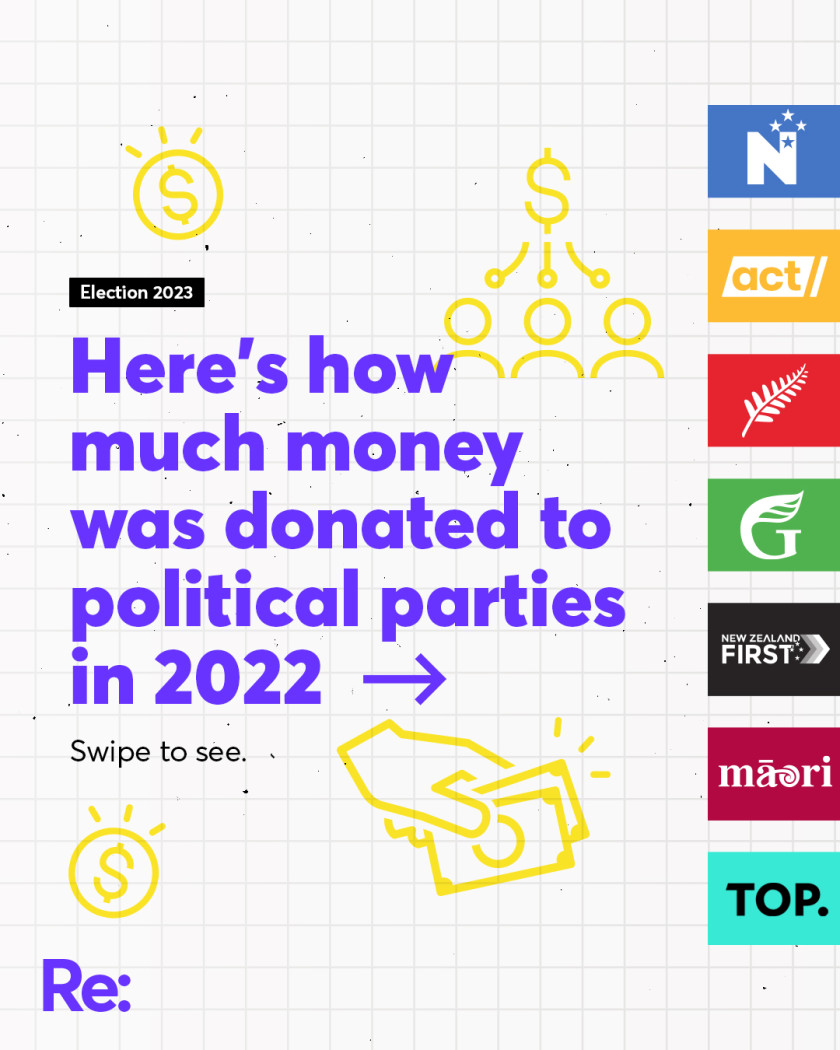
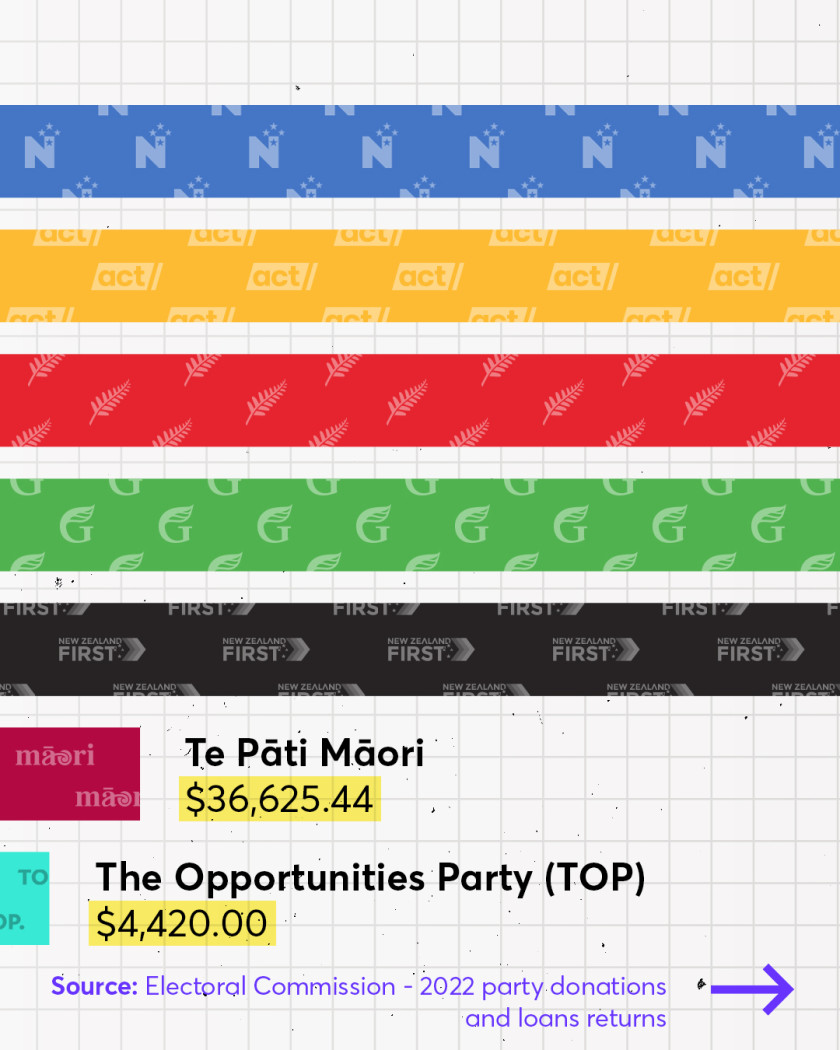
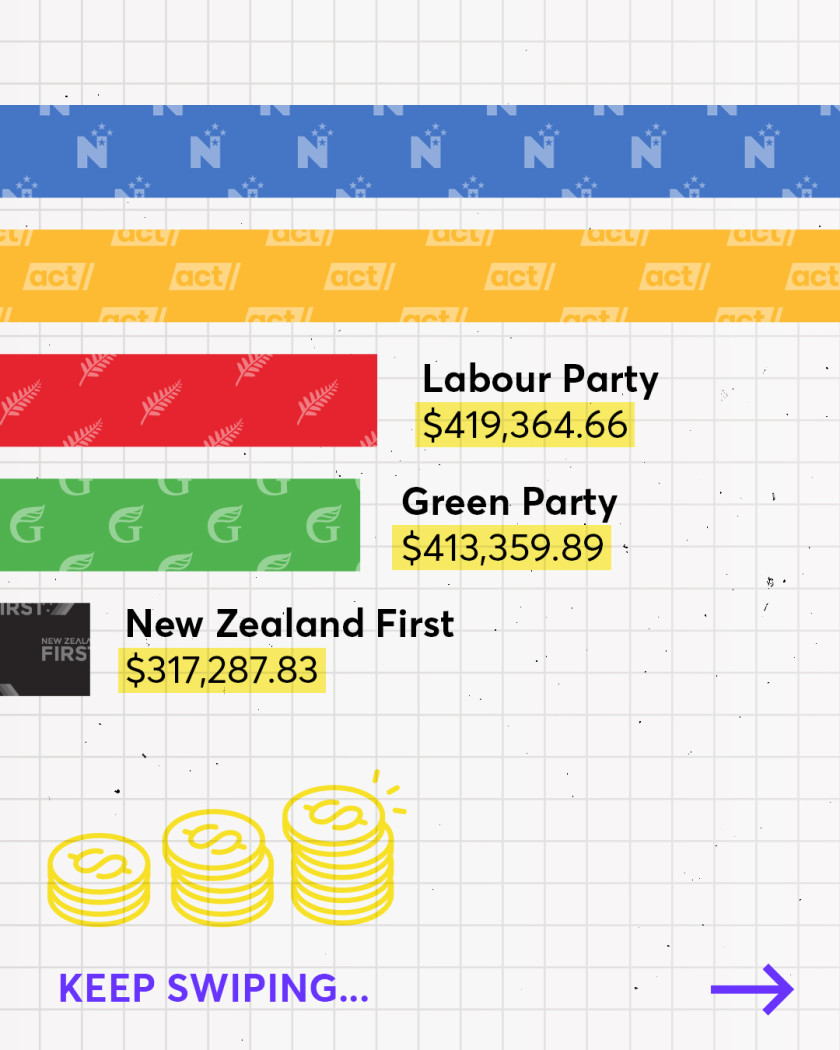


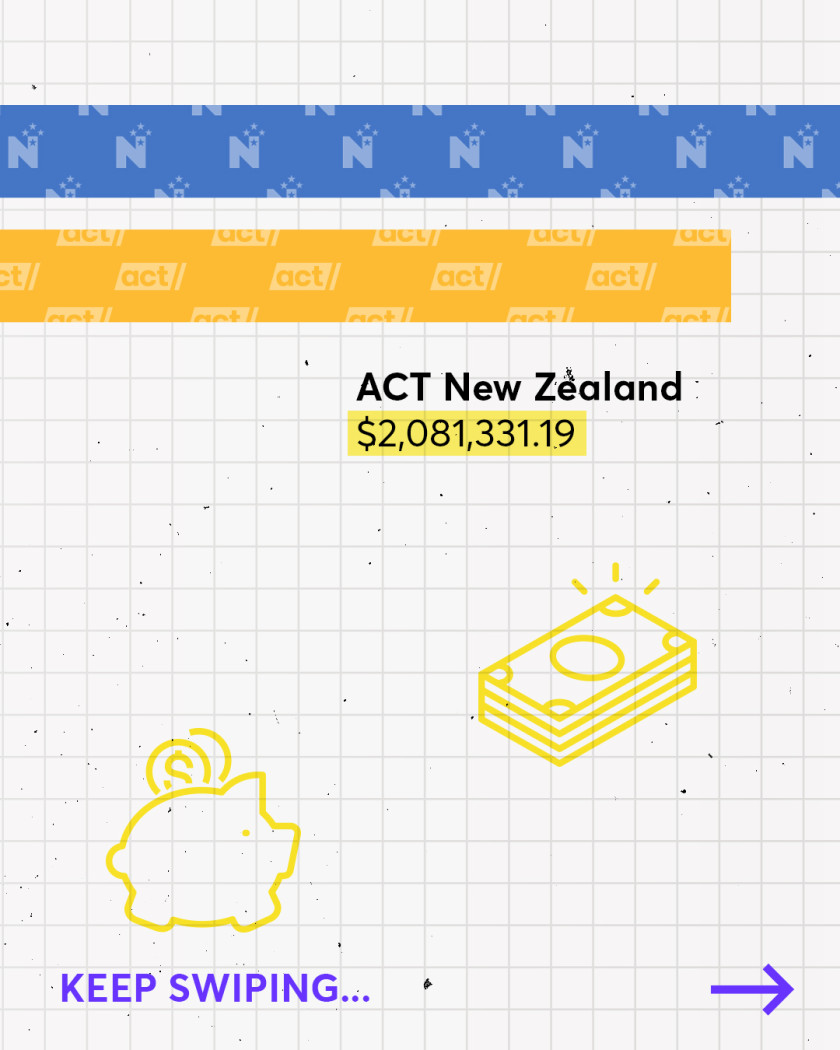


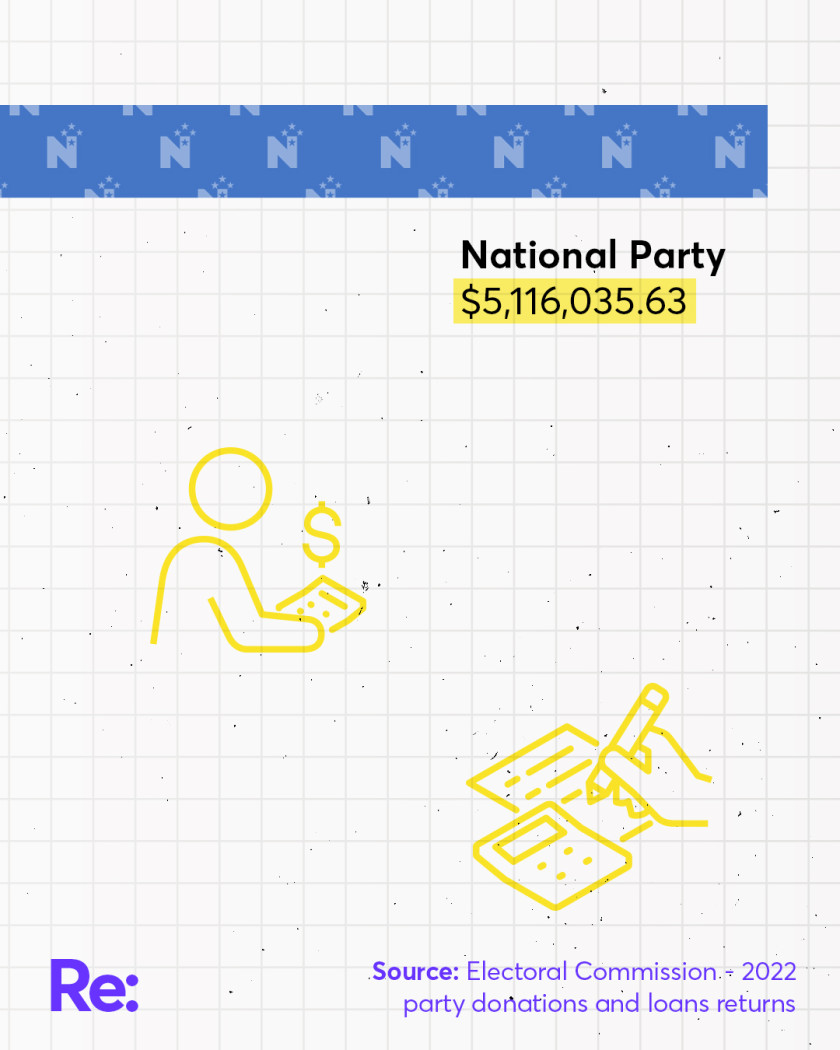
More stories:
Teens working in NZ are paid less than everyone else
Here’s why these activists think the starting-out wage should go.
How to vote in the New Zealand election from overseas
Nearly 65,000 New Zealanders living overseas were enrolled to vote in the 2020 election.
Youth crime isn’t more common, it’s just more visible
The past 15 years have actually seen a dramatic decline in youth crime, according MOJ stats.